Countdown to TLOU #7 (Beatboxing)
Post-apocalyptic stories shouldn't all be painted with the same sonic brush. They should sound as different as people are.
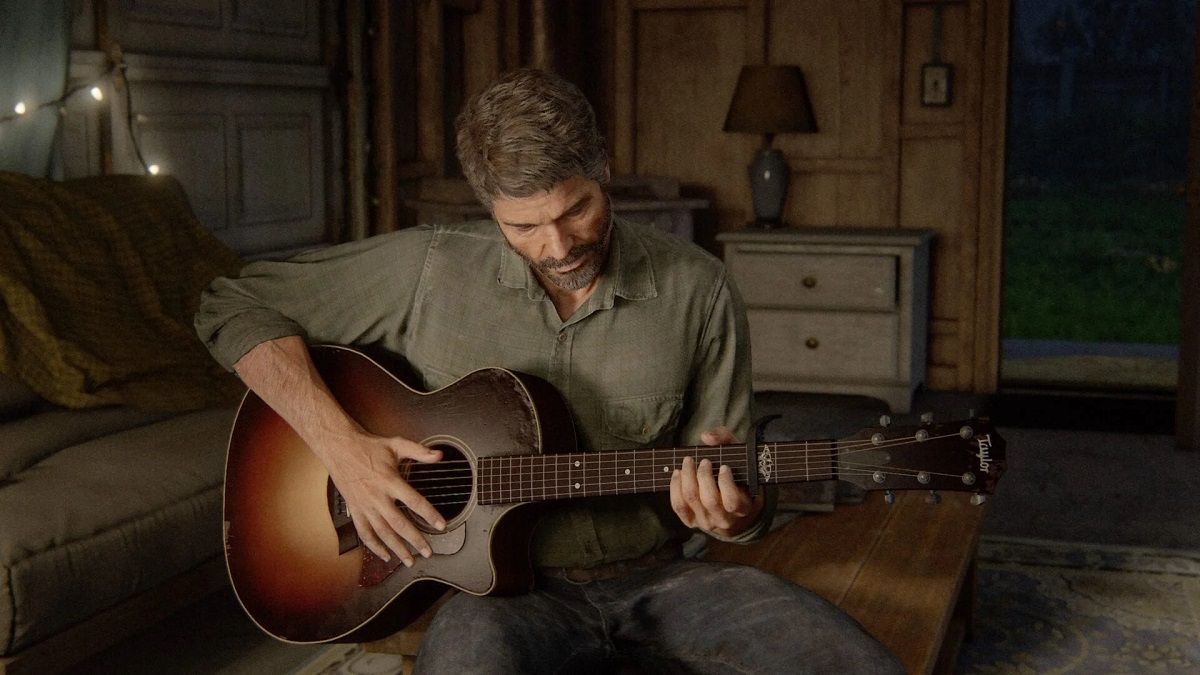
Here's the second part of my look at in-world music in genre TV and film (the first part went out yesterday). Technically, YESTERDAY was Day 7 of the countdown to TLOU, but I'm hoping to get two out today and get all caught up since today is Day 8. We'll see!
Below, I focus on post-apocalyptic stories and how their fictional characters and communities enjoy, create, and respond to music...and what I think storytellers need to think about more.
Welcome back to the intersection of Teresa & Music --
The Last of Us and its sequel have gorgeous scores composed by Gustavo Santaolalla (with an assist from Andrew Buresh, Anthony Caruso and Jonathan Mayer on the "Left Behind" DLC). The music of the game is haunting and evokes the persistence of the world's rustic human settlements, the collective mourning being experienced by survivors of the pandemic, and the threat of gruesome death at the hands of the infected in equal measure.
Meanwhile, Joel is a musician. In the first game, he confesses to Ellie that he used to want to be a singer before the world went to hell. She challenges him to sing her something, and he declines, but promises to teach her to play guitar. She says, "I swear, if I get you out of this, you're so singing for me." He replies, "You wish."
In the second game, he does sing for Ellie, and guitar-playing features heavily in TLOU 2.
We watch Joel heartbreakingly sing his feelings to her through a rendition of Pearl Jam's "Future Days," then watch as he gives Ellie his guitar. As Ellie continues on her adventure, she finds other guitars throughout the game, and there are mini-games where we, as Ellie, try to strum a tune. Oh, and of course there's the beautiful moment where Ellie serenades Dina with a downtempo version of "Take on Me."
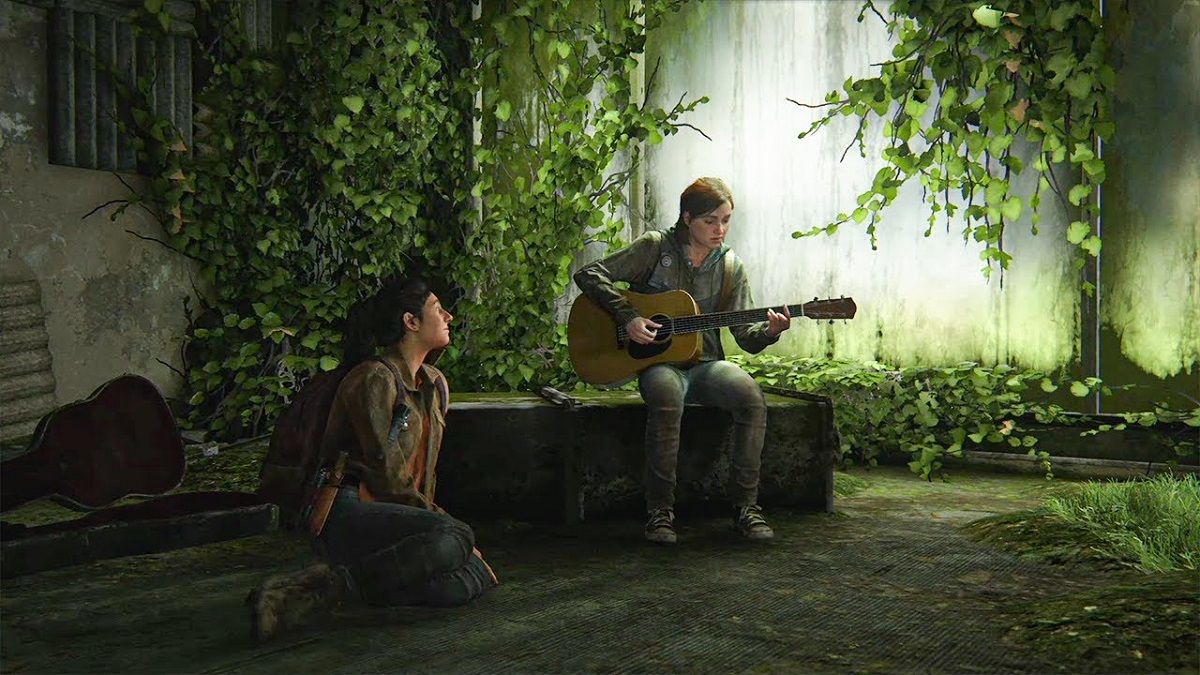
Making Joel a musician was a thoughtful and intriguing character decision, considering that when we meet Joel, he's not exactly the type of guy we can imagine singing at all, let alone wanting to sing for a living. We're never really told when he gave up performing, or indeed much about his backstory before we see him with his daughter, Sarah.
We don't know why he's a single dad, or much about his relationship with Sarah (though I understand that the HBO show will be depicting a lot of this!), but knowing he was a musician is an interesting lens through which to look at him. He has music in his soul. That's a deep part of him. Watching him share that part of himself with Ellie allows us to imagine his relationship with Sarah, etc. So, it was a gorgeous character choice.
Yet, I couldn't help but think about the fact that the action of the game, and Ellie's entrance into his life, come 20 years after Sarah's death. Twenty years of a world suffering with the cordyceps virus. Twenty years through which clans and camps and militias alternate between popping up and fracturing trying to create some semblance of human civilization. Infrastructure has deteriorated, and there don't seem to be enough people in any one place to maintain much.
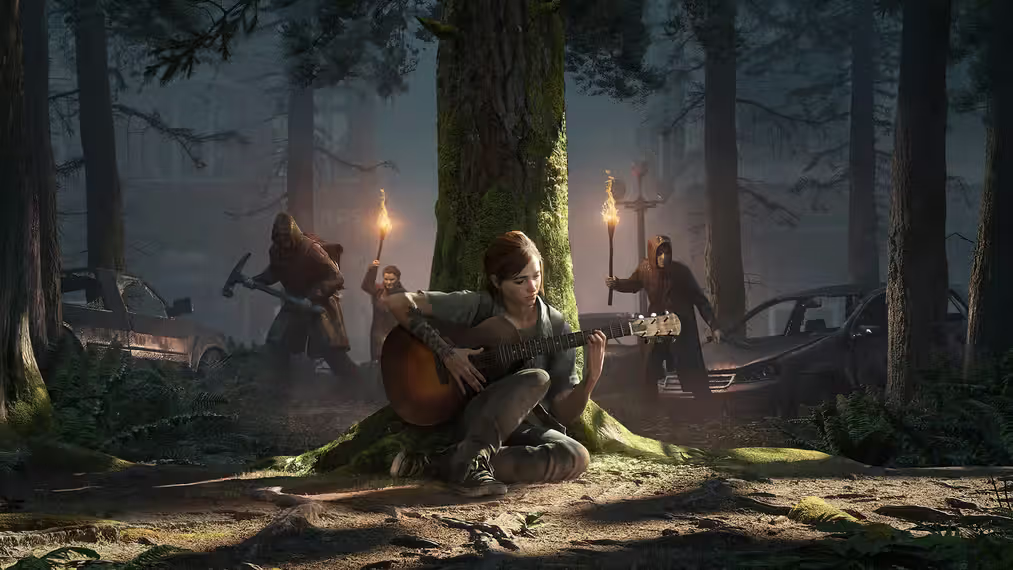
And then there's the constant fighting. It's difficult to rebuild when there's a constant threat from either the infected, or other human beings pushed to their extremes in a fight for survival. Even the best-kept homes and buildings are shadows of the former world that are in constant danger of being wrecked in the throes of violence. Electricity isn't reliable, and a society that had gotten used to convenience has had to learn to do things manually that used to be done by machines or make things that used to be purchased online.
Ellie was born six years into an apocalypse. Her access to music would've been very different to what any adult would've experienced in their childhood, and while I'm sure the adults in her life tried to find ways to give her their own musical knowledge and taste, it would've all been well before her time.
So, I couldn't help but think: what music might come from 20 years into a society where a kid hearing recorded music is a rare occurrence. Where prefabricated instruments are harder and harder to come by. Artists process tragedy through art, so where is the new music being written and how is it being made?
Because it struck me that Ellie just happened to find these perfectly good, playable acoustic guitars seemingly all over the place. In "Left Behind," Riley made Ellie a mix tape (a tape?) that featured Etta James' cover of "I've Got You Babe," and she happened to be able to get the electricity up and running in the mall, and happened to be able to connect Ellie's Walkman (Walkman?) to the speakers in a store to play it.
It made me think about about in-world music in a couple of other post-apocalyptic stories I've enjoyed.
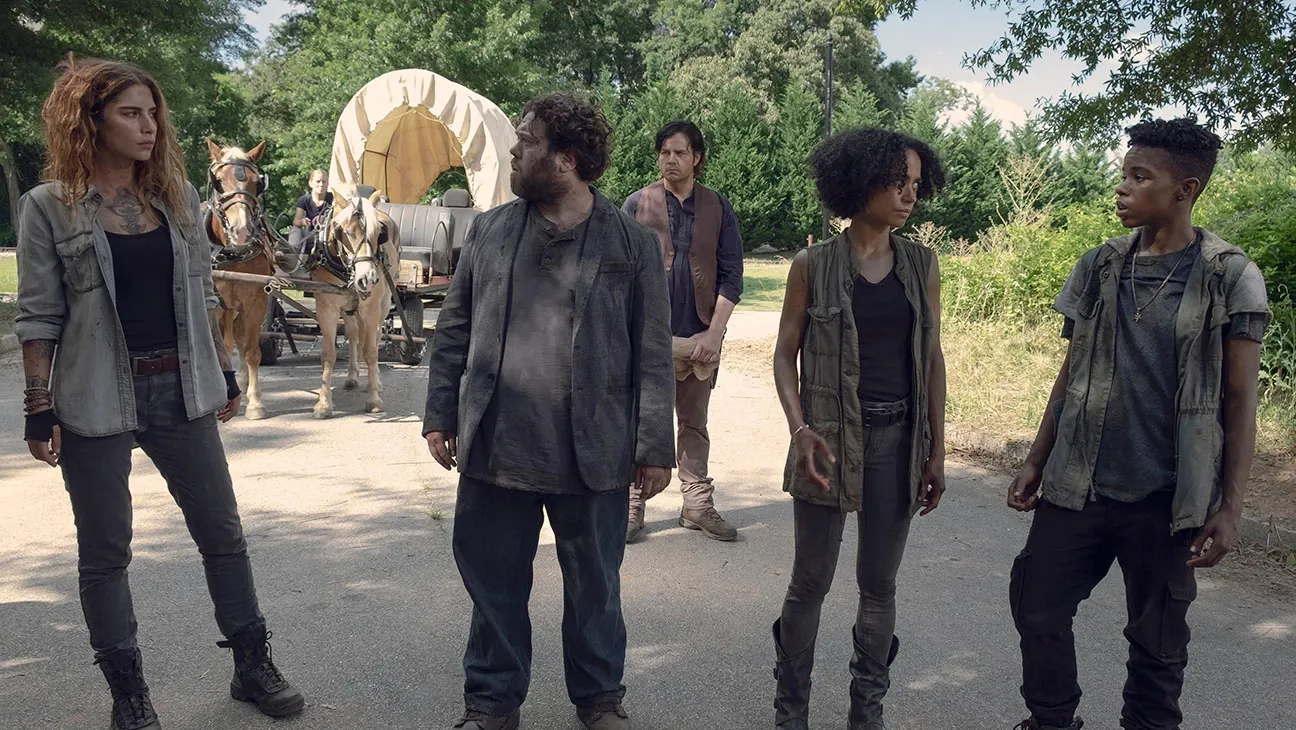
The Walking Dead -- there wasn't much music or art at all in the first few seasons of the show, since the outbreak was relatively fresh, and everyone was primarily focused on immediate survival. But as the scope of the show expanded, and the small, core group of characters continued to travel and absorb other groups, we were introduced to the group of Yumiko, Magna, Connie, Kelly, and Luke. Luke was a music teacher in the old world, and in S9 Ep7, "Stradivarius," we learn that Luke had been collecting and storing musical instruments he's found in an attempt to salvage music and art. This continues to be a concern of his, and throughout the show we see him play music for the others and nearly get killed as he searches a library for sheet music.
However, there's also song. Alden, a former member of the Saviors who ends up joining our core group's community at Hilltop, has a great voice, and when one of their number, Ken, dies after having been set upon by walkers, Alden sings "The Last Rose of Summer" at the funeral.
When music appears in TWD, it's usually an attempt to hold onto music as it was in the old world.
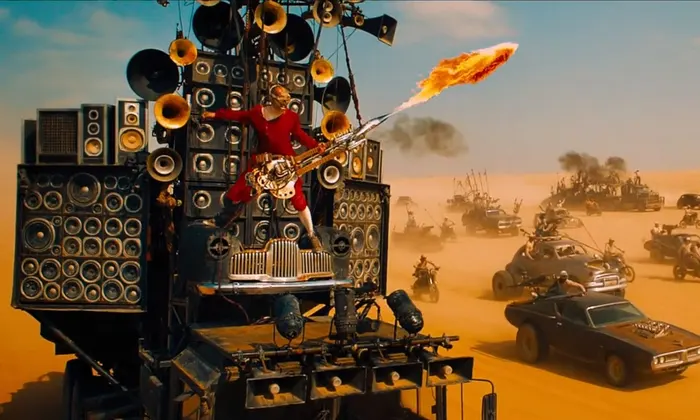
Mad Max: Fury Road -- the bombastic music in the world of Fury Road commanded by Immortan Joe in his use of The Doof Warrior is the opposite of holding on to the old world. What's great about this, is that it's clear this use of music comes out of the new culture that has sprung up around Immortan Joe and his followers. War drums and blaring electric guitar (that's also a flamethrower, because why not) played by a blind man who's entire job is to hang from the front of a vehicle rocking out to psych up their crew and psych out enemies.
The musical set-up is scavenged from garbage, and just as other resources (like 'guzzoline') are rare, this enormous display of speakers and drums and literally flaming theatricality seems to be a display of wealth and power. We have the resources to build all of this and have the electricity it needs to run and fuel enough not only for all these cars, but to have flame come out of this guy's guitar. We are shiny and chrome!
Even better, everything The Doof Warrior plays is original music for the film, so he's not using songs from the old world. Someone (it's not clear whether the Doof Warrior is a composer as well as a guitarist) wrote this music during this particular apocalypse. Or, he's just riffing. Either way, it's new.
While this use of in-world music was clearly given lots of thought (and is badass and fun to watch), it's also not music being made by the average person, or created for other people as art. This music is basically military in use and created by those in power.
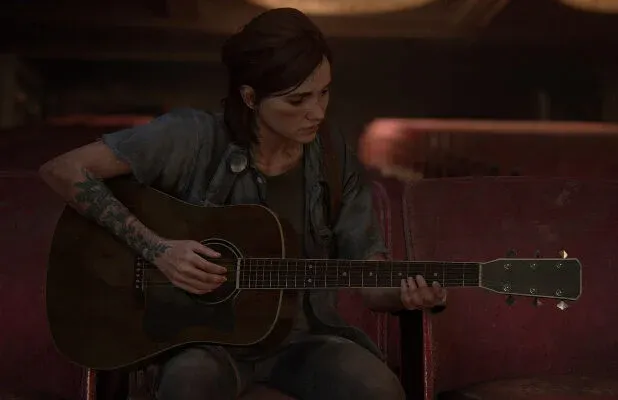
- I know apocalypses are no fun, but where are the artists in all this? I know that, no matter what's going on with me, I have to write. That's how I process the world around me. If I were ever in an apocalypse (arguably, I already am), I know that, after the initial shock and despair wear off, I'd find my way back to myself and others through my writing. I'm sure the same is true for musicians, or visual artists.
- Why does the sole focus seem to be saving things from before? I understand wanting to preserve human culture for future generations...but as I asked above, where are the artists in all this? Even a child born into an apocalypse, like Ellie in TLOU, if they are an artist--if music is a part of their soul like it was for Joel--they'd have the impulse to create something. I can't imagine, then, that the adults in these worlds who know they have creative impulses wouldn't find a way to follow them. The HBO adaptation of the novel Station Eleven does a beautiful job of showing the importance of art in humanity's recovery after an apocalypse, but it's centered around a theater troupe that performs Shakespeare. Even the non-Shakespeare material that's performed is from the titular comic, Station Eleven, which was written before the pandemic that caused their apocalypse. Am I supposed to believe that no one can come up with anything new to write about? After a freaking apocalypse? Now, Lori Petty's character, Sarah aka The Conductor, does compose original music for their productions, so that's something! But...
- Why is post-apocalyptic music still so instrument-dependent? All of the above examples are dependent on either finding existing instruments, or cobbling together new instruments (and in the case of Fury Road, having electricity to power things like electric guitars and speakers). In a post-apocalyptic setting, resources will be more scarce, and depending on the type of apocalypse, I don't think it's likely that instruments will be accessible to many or most people. And if people are creating instruments, why aren't there more drums? How are they also making all these string instruments (you can't just attach any type of string to a guitar or violin-shaped thing and have it sound good). And lastly...
- Why is it that the only kind of music we hear in post-apocalyptic settings is folk, or country, or bluegrass, or alternately (in the case of Fury Road), metal? Why is it that the music that post-apocalyptic people want to preserve is the music that requires the most expensive, difficult to create instruments when you can drum on damn near anything, or make a shaker out of any container, or if you're really ambitious, carve a flute/piccolo out of a hollowed out piece of wood?
Now, there have been stringed instruments for millennia, before humanity had the technology to mass-produce instruments, back when people made everything by hand, using simple tools. Ancient peoples used catgut (animal intestines) to make strings for violins and gitterns (precursor to the guitar) and lutes. Horsehair for musical bows (and hunting bows).
The question is, are post-apocalyptic humans (usually depicted as existing in our future) going to have the desire, wherewithal, or knowledge to make their own guitar strings? I mean, people don't know how to fix pretty basic things now. There won't be an internet, so no YouTube tutorials. So, unless there happens to be someone in your settlement who knows how to make new guitar strings, or you happen upon an old library that just happens to have a book on how to make strings for instruments, there will be a huge learning curve, and there'll be a dip in that skill before it's relearned. And even if people relearn the skill, depending on the type of apocalypse, what's the state of the animals? Are their carcasses safe to touch? And will people want to waste perfectly good animal intestines on strings for instruments?
Will people then stop making music once all the existing guitar strings break?
I guess what I'm asking is, why do we so rarely consider that in a post-apocalyptic world, people might make music with the only instrument that will truly be with them wherever they go--their own bodies?
Related question: where's the poor people music? Where's the music that has a long history among Black people or Indigenous people?
Let's think about it in terms of sports for a second. The sports that have a higher percentage of white players just so happen to be the sports that require lots of expensive equipment, space rental, etc: hockey, figure skating, tennis, golf. Meanwhile, sports like basketball, soccer ("football" to folks outside the U.S.), or football ("American football" to those outside the U.S.), that can be played for free in a park and require minimal investment, have a higher percentage of BIPOC and/or lower-income folks playing them.
So, post-apocalypse, when everyone will be the same level of poor (for a while, anyway), and resources will be scarce, wouldn't it make sense to see an uptick in music developing that doesn't require such luxuries? Music that's primarily vocal or uses percussion?
Submitted for your approval: some musical forms that, whenever I hear them, I always imagine them in the context of some genre story or other:
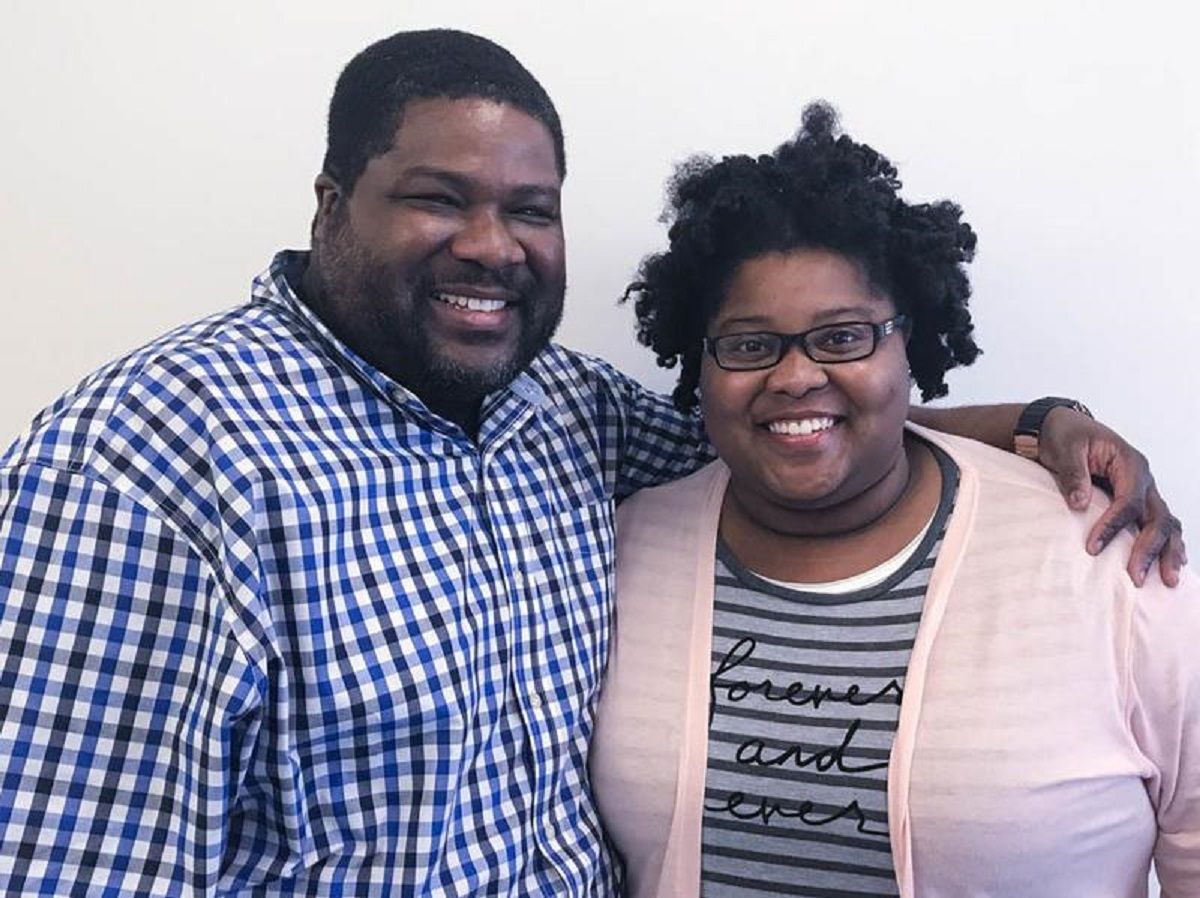
BEATBOXING
Father/Daughter Beatbox Battle performed by Nicole Paris and Ed Cage -- Every time I see any kind of post-apocalyptic story, I always wonder, Where's the hip-hop? It's as if, in the world of these stories, people have forgotten all other genres of music and only remember sad songs to strum on the guitar. (Or, maybe it's just that most of these stories are created through a white lens) If you are in a world where you're constantly on the move, and your only instrument is you, you're not limited to just singing, or even rapping. You can be an accompanist. You can be a composer. And lest you think that in order to beatbox effectively you need a mic, the above example as well as several others below (I have a long list of beatboxing videos in my YouTube Favorites) prove that you don't. I can easily see people gathering to entertain each other by having beatbox battles, or composing new songs with it.
- Kaila Mullady for Swiss Beatbox -- I love Kaila Mullady's style, because she's great at incorporating singing into her beats, showing what's possible musically if you're trying to perform a whole song with nothing but your own voice. If you have to choose one, watch the video above, but if you've got an additional 4 1/2 minutes for another one, check her out in the elimination round at the Great Beatbox Battle 2016.
- Dave Crowe beatboxing in Milan, Italy -- this dude is really good at performing dubstep. If you're in a post-apocalyptic world, and you absolutely must re-create musical genres from the old world, it could happen this way. No electronics (or electricity) needed. (While he is using a mic in this example, it could be done without)
- Pe4enkata performing at the GBBB Judge's Showcase 2016 -- Pe4enkata is one of the most highly-regarded female beatboxers in the world, in large part because of how good her bass is. Lest you think that post-apocalyptic beatboxing would, by default, be male-dominated, or risk losing something, Pe4enkata is proof that women are capable of all sorts of sound, on a mic, or not.
SINGING A CAPELLA
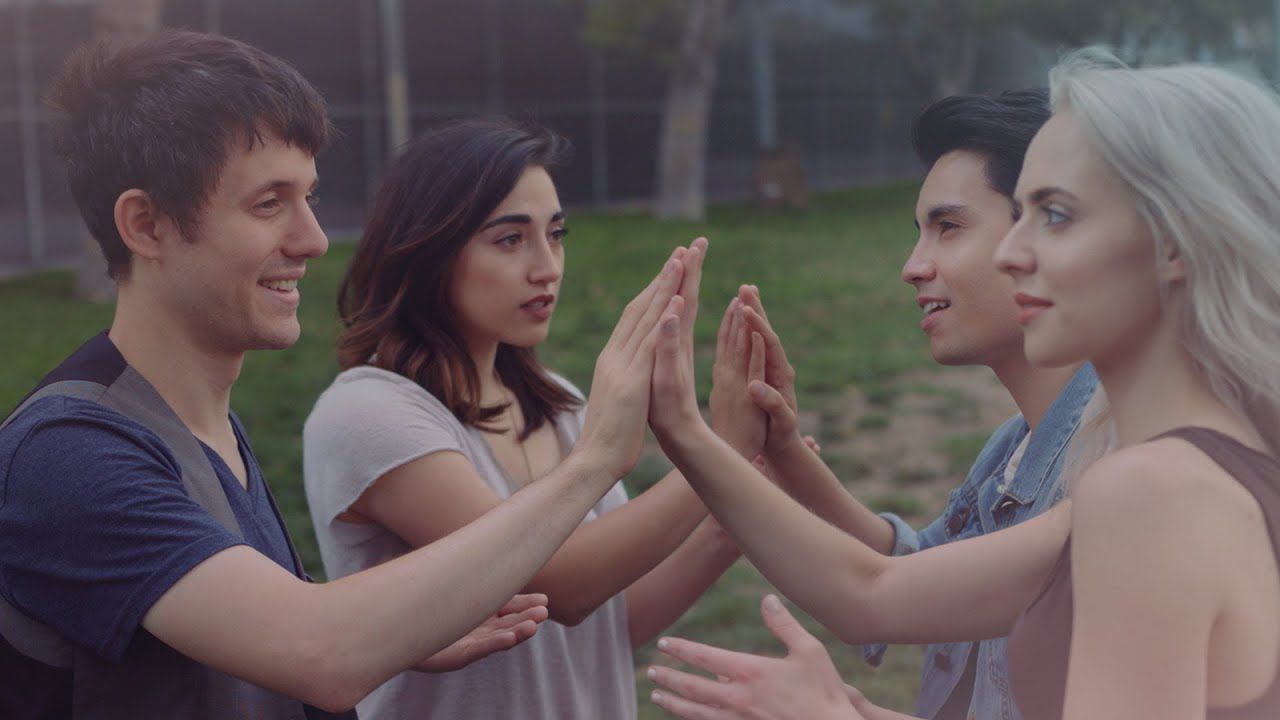
'Send My Love (to Your New Lover)' "Patty Cake Cover" performed by Kurt Hugo Schneider, Sam Tsui, Madilyn Bailey, and Alex G -- I can see people figuring out new music and songs this way; vocalizing and clapping to themselves or hitting their hands against their own bodies (did someone say step team?), and when they reach the limit of that, they employ the help of others. Imagine people singing a song this way in a bomb shelter when all they have are their cots, cans of food, canteens filled with water, and each other.
"We Can't Stop" (A Capella version) performed by Miley Cyrus, The Roots, and Jimmy Fallon -- This one actually took me to a sci-fi place. Specifically, Westworld (RIP). When I first heard this, what stood out was the way that The Roots' beatboxing sounded like an old school printer. It made me think about the hosts on Westworld, and how if they ever came into their own enough to create a culture independent of humans, what might be included? I imagined them creating music through beatboxing, but making machine sounds as they do it, honoring that they are machines while creating art in the way an organic being might.
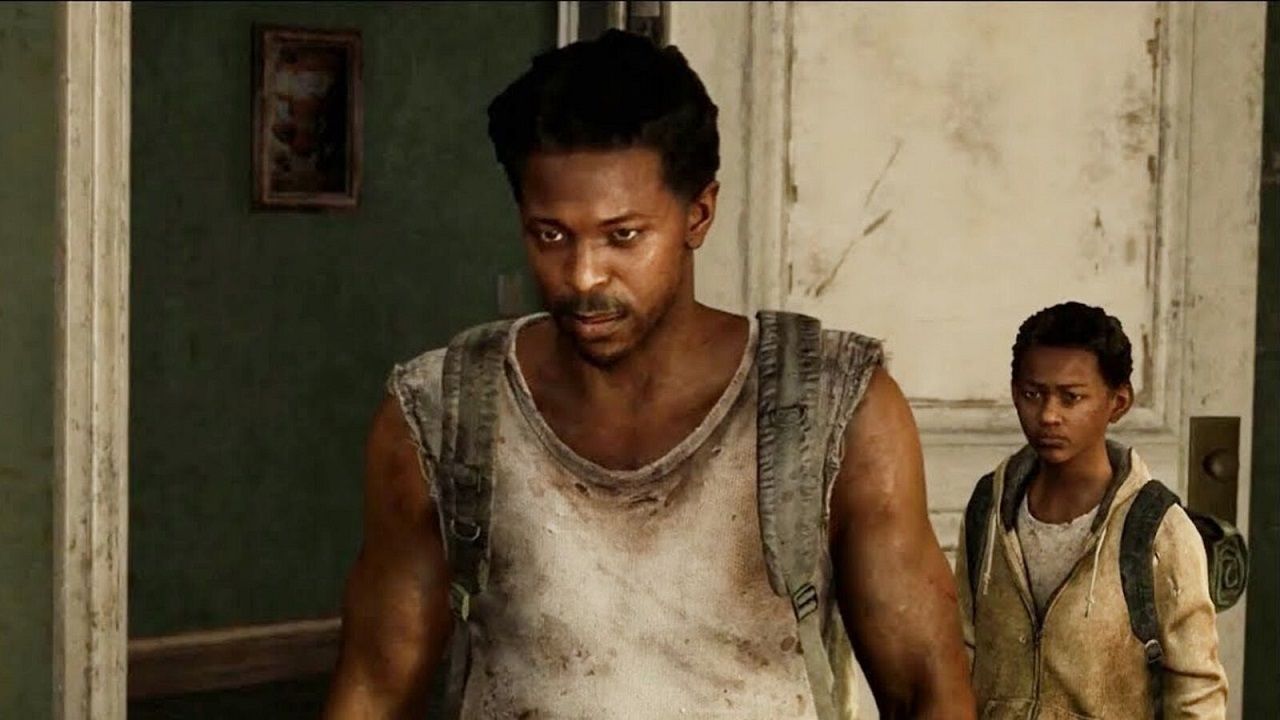
As the story of The Last of Us continues to unfold, I hope that we not only see more cultures represented, but that Neil Druckman (and Craig Mazin re: the series) remembers that people don't have to be professional artists to create, and those who do want to share their art with others will find a way to do it, apocalypse or no apocalypse. People need music and other art forms in order to survive. That is not hyperbole.
Post-apocalyptic stories shouldn't all be painted with the same sonic brush. They should sound as different as people are.

